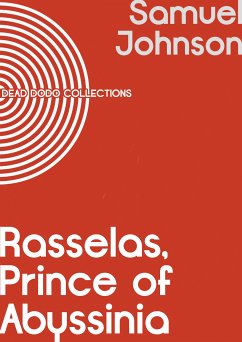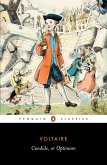While the story is thematically similar to Candide by Voltaire, also published early in 1759 - both concern young men travelling in the company of honoured teachers, encountering and examining human suffering in an attempt to determine the root of happiness - their root concerns are distinctly different. Voltaire was very directly satirising the widely read philosophical work by Gottfried Leibniz, particularly the Theodicee, in which Leibniz asserts that the world, no matter how we may perceive it, is necessarily the "best of all possible worlds". In contrast the question Rasselas confronts most directly is whether or not humanity is essentially capable of attaining happiness. Writing as a devout Christian, Johnson makes through his characters no blanket attacks on the viability of a religious response to this question, as Voltaire does, and while the story is in places light and humorous, it is not a piece of satire, as is Candide.
Dieser Download kann aus rechtlichen Gründen nur mit Rechnungsadresse in A, B, BG, CY, CZ, D, DK, EW, E, FIN, F, GR, H, IRL, I, LT, L, LR, M, NL, PL, P, R, S, SLO, SK ausgeliefert werden.









